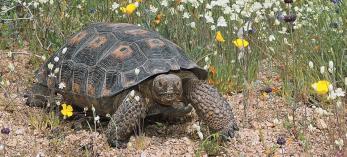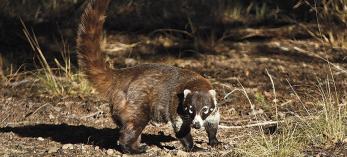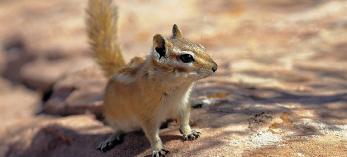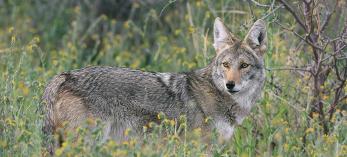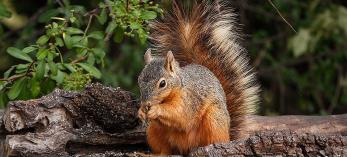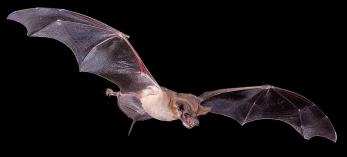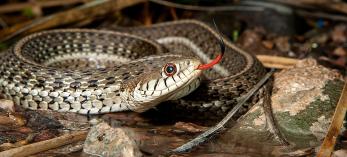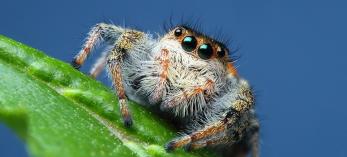- Hall of Fame
- Explore
- Photography
- Shop
- Classroom
- Subscriptions
Nature
Browse our nature archive.
Desert Tortoises
If misters are proof of anything, it's that it takes a little moisture in the air to get Arizonans to even consider moving around in the summer. Desert tortoises are…
Coatimundis
Picture a raccoon with a slimmer body and a longer tail and a snout. Add white fur around the eyes and nose, and you have the white-nosed coatimundi, the only species of…
Hopi Chipmunks
While taking an early morning or late-afternoon walk through the forests in Northern Arizona, keep your eyes peeled for the Hopi chipmunk’s long, fuzzy tail slipping into…
Coyotes
Coyotes have a special place in Southwestern kitsch. They're often depicted on screen-printed souvenir-shop apparel, howling at a Swiss-cheese moon. Neither nightlights…
Chiricahua Fox Squirrels
Chiricahua fox squirrels live up to their name — their tails are characteristically bushy, like fox tails. Located as far north as Arizona’s Chiricahua Mountains and as…
Gunnison's Prairie Dogs
Of the five species of prairie dogs, Gunnison’s prairie dogs are the smallest. Unlike other prairie dogs, Gunnison’s are not known to kill their young, but they’re dying…
Mexican Free-Tailed Bats
Every week, a colony of Mexican free-tailed bats (Tadarida brasiliensis) can eat hundreds of tons of insects, particularly moths — some of which prey on cotton…
Mexican Gartersnakes
Mexican gartersnakes (Thamnophis eques) spend their time in marshy areas and streams, foraging next to the water. In places with dense vegetation, such as…
Emerald Jumping Spiders
Emerald jumping spiders (Paraphidippus aurantius) are flashy, and they flaunt it — the iridescent scales on their bodies make them especially shiny, which shows…

